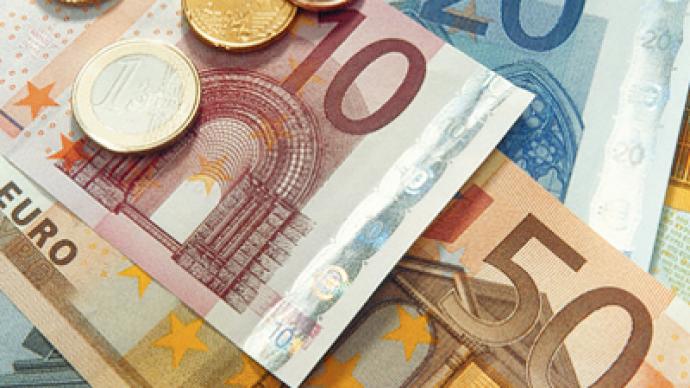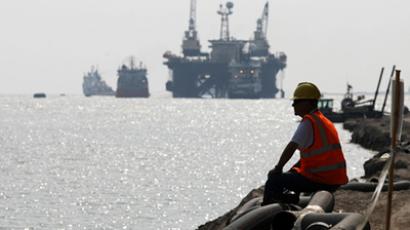Euro volatility, inflation and Russia

With the Euro losing ground on investor concerns about the debt problems in Greece, Ireland and Portugal, Business RT spoke with Evgeny Nadorshin chief economist at AFK Sistema about the factors at play and the implications for Russia.
RT: What are the main factors driving the euro lower?EN: “I would say the Greek factor is the main.All the concerns around the debt crisis, potential insolvency of the Greek government, and the potential restructuring of the debt, these are the issues which put significant pressure on Europe right now.And they are added by the fact that Quantitative Easing 2, which is being conducted by the US Federal Reserve is closing to an end.And actually with the concerns of many financial investors that there may be no QE3 investors have become more risk averse than before, and actually Greek is the risk right now, and with a junk rating it puts a lot of pressure on the whole European currency.But I do not think this is a long term pressure, in fact.” RT: How long do you expect the euro's current slump to last – how low could it go in the medium-term?EN: “I think this is a temporary movement and I don’t expect it to last a very long time actually.This may last for a few days or a few weeks, no longer.History shows that European governments are usually in a hurry to solve these issues, and they usually try to find solutions as quickly as possible.I have already heard, I have already read a lot of news saying that they are close to a solution – not to restructure the debt, which actually is the problem for many, many, private investors, but to give an amount of euros from the stabilization fund to support a weak economy.That is actually a temporary solution for the Greek economy.This may calm down the markets as it has already in 2010 a few times.”RT: What about the knock-on effect elsewhere – will the weaker Euro help to fight inflation in Russia?EN: “I really doubt that.The problem with our inflation currently is food stuff inflation, and many other agricultural goods they go up in price – like cotton for example, that affects textiles and cloth a lot of other stuff.And this inflation does not come from European economies actually.Yes we do import some foodstuffs from Europe, but not that much in order to help our economy to decrease inflation. Our inflation is mostly a problem of emerging markets – not only Russia, but China, India, Brazil and many, many, others.But this is not the question of the Euro dollar exchange rate.” RT: The U.S. and EU are retaining relatively low interest rates, while the emerging economies are tending to raise theirs? Why is that happening?EN: “The issue is in the inflation actually. That is the answer. They are facing relatively high inflation and that is not the case for Europe and the United States. They may see certain increased risks of inflation, at the same moment we see increased inflation already and for a few times at least.That is actually the difference between China, Brazil, India, Russia, for example, between many, many, other emerging markets and many developed economies. The weight of foodstuffs in the consumer basket in Europe actually is significantly lower than in Russia. So the situation is that when foodstuffs go up – and that is what has happened some time ago – it puts pressure on emerging markets, and as emerging markets are highly affected by the foodstuff prices, they begin a relatively risky strategy, and that is what has happened in China, in Brazil, in many other emerging markets.In Russia the central bank has been increasing rates, reserve requirements for example, for some time. And yes, we are trying to fight our inflation. At the same moment Europe and the United States, they are facing sluggish economic development, they are facing not very good growth rates, not very stable. They are facing problems with government debts and other issues which they have to solve, and these issues mean they have to keep their rates relatively low, in terms of main refinancing rates and borrowing rates, and that’s why we see our rates increasing and we don’t see their rates growing significantly.”














